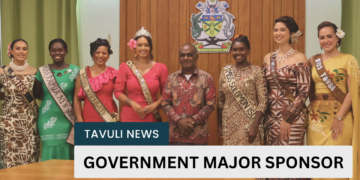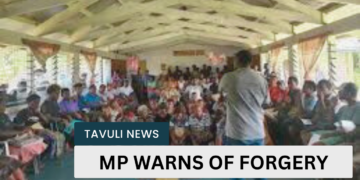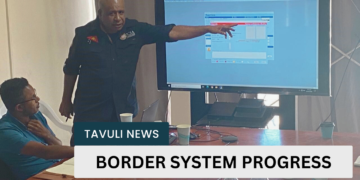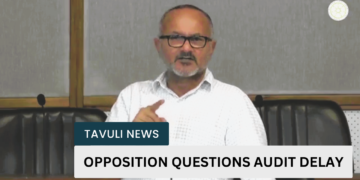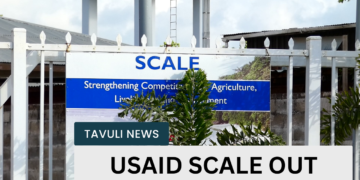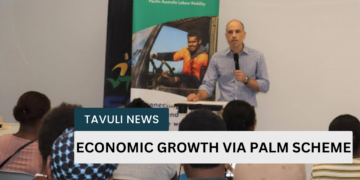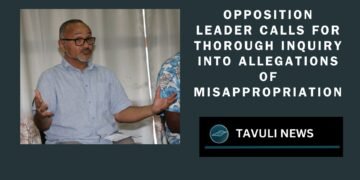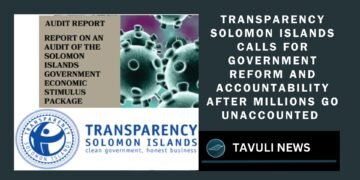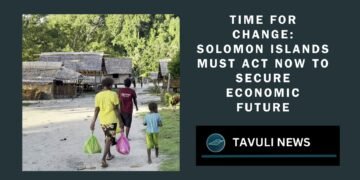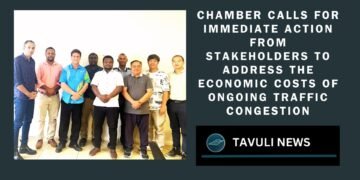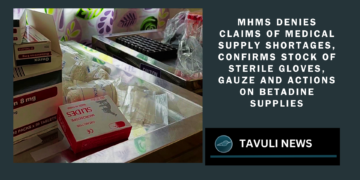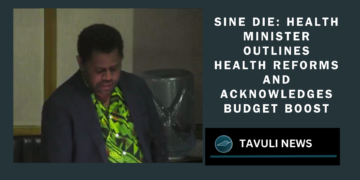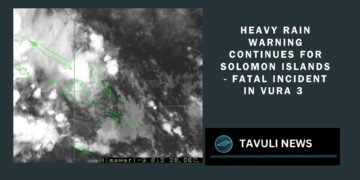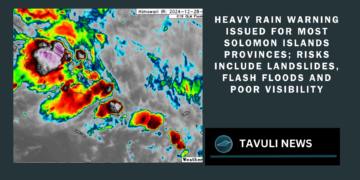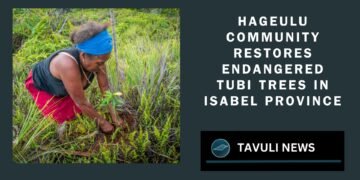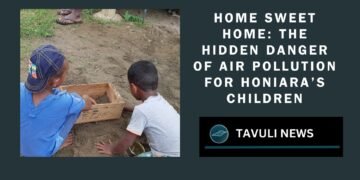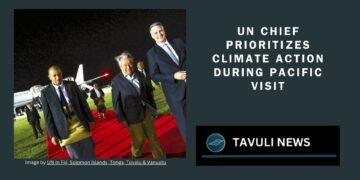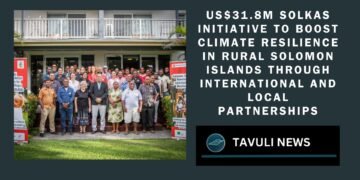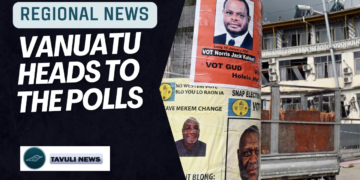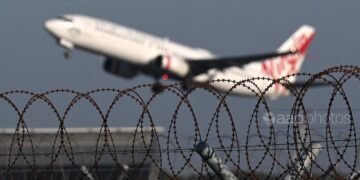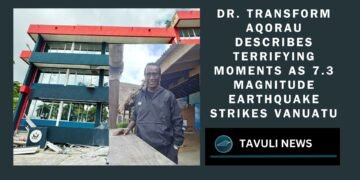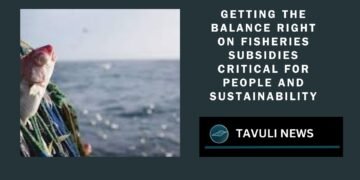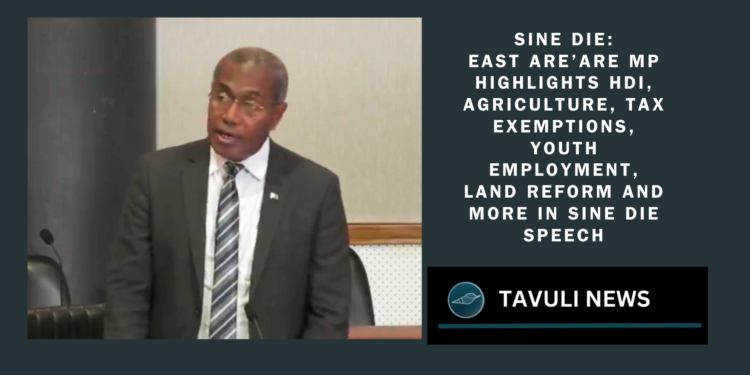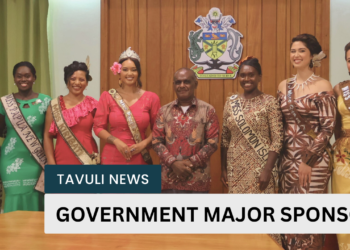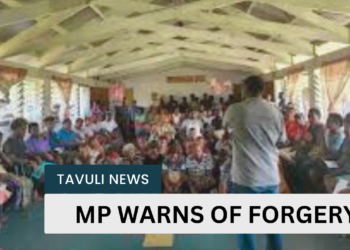MP Peter Kenilorea Jnr highlights HDI, agriculture, tax exemptions, youth employment, land reform and more in sine die speech.
In his contribution to the Sine Die motion, the Member of Parliament (MP) for East Are’are began by extending condolences to the people of Vanuatu. This was in response to the recent 7.3 magnitude earthquake that struck Port Vila. The MP expressed solidarity with the Pacific nation, highlighting the importance of regional support in times of crisis.
The MP in his introduction also praised the Solomon Islands Ports Authority (SIPA) for the successful completion of the domestic terminal. He highlighted that the project was a moment of national pride, noting that it involved local workers in its construction. He further acknowledged the efforts of the Prime Minister and the Government of National Unity and Transparency (GNUT), recognizing the achievements of the past few months.
While he commended these successes, the MP also emphasized that challenges remain, particularly in key areas that need further attention.
Focus on Human Development Index (HDI)
Turning his attention to the nation’s development, Peter Kenilorea Jnr pointed to the importance of monitoring key indicators, including the Human Development Index (HDI). Despite the government’s accomplishments, he stressed that Solomon Islands continues to struggle with improving its HDI, especially in light of the country’s upcoming graduation from Least Developed Country (LDC) status in 2027. This, he noted, requires the government’s ongoing focus to ensure that future policies align with national development goals.
Education and health, he emphasized, are crucial components of the HDI. These sectors, which receive a significant portion of the national budget, must be strengthened to improve the country’s overall development.
Managing National Expenditure and Revenue
The MP also voiced the growing national expenditure, particularly in the health sector, where the cost of providing free services continues to rise. While he acknowledged that increased expenditure is unavoidable, he highlighted the more pressing issue of generating sufficient revenue to balance these costs.
He suggested that the government should focus on doubling the country’s Gross Domestic Product (GDP) to better address these challenges. With GDP growth currently tracking alongside population growth, the MP noted that this imbalance is now beginning to show its impact on the economy.
Agriculture and Value-Added Exports
Agriculture, Kenilorea argued, remains the foundation of the Solomon Islands economy. Given the decline in forestry resources, he urged the government to focus on agriculture and fisheries as key sectors for increasing GDP. He further recommended adding value to agricultural products before exporting them, a strategy that would yield higher returns for the government and people.
In addition to agriculture, the MP also highlighted the potential for value-added exports in the mining sector. He encouraged the government to focus on increasing Foreign Direct Investment (FDI) in agriculture and tourism, suggesting that investors in these sectors should align with the country’s long-term development goals.
Job Creation and Youth Employment
The MP called for greater focus on job creation, particularly for young people. He argued that all development projects should have clear benchmarks for employment outcomes, with data made available on the number of jobs created. With youth unemployment a major concern, he emphasized that the government must ensure that Solomon Islanders benefit from investments made in the country, particularly those coming from FDI.
Cost of Electricity and Renewable Energy Solutions
The MP also raised concerns about the high cost of electricity, urging the government to take action to bring these costs down. He recommended exploring renewable energy options as a way to reduce the financial burden on consumers.
Tax Exemptions and Their Economic Impact
In his speech, the MP also highlighted the ongoing debate about tax exemptions. He acknowledged that certain sectors and businesses are granted exemptions, which can encourage investment by excluding them from paying taxes on specific income or goods. However, he stressed the need for a more balanced approach to ensure that the country generates sufficient revenue to meet its growing expenses. The MP pointed out that while tax exemptions can attract investment, he has yet to hear discussions around tax credits. He emphasized that tax credits could also contribute positively to the economy, a tool that has yet to be explored in depth.
Land Law Reform and Resource Access
On the issue of land law reform, Peter Kenilorea Jnr emphasized the need for clearer legal frameworks that govern access to natural resources on customary land. He suggested that the government should establish a transparent process for investors seeking to access these resources, particularly in sectors like mining.
He stressed the importance of policies that protect both the people and the country’s natural resources. These policies, he said, should ensure that development benefits all Solomon Islanders while safeguarding the nation’s resources for future generations.


